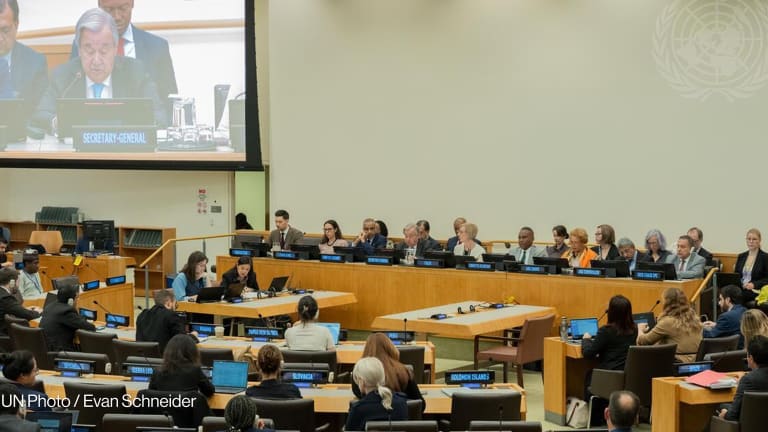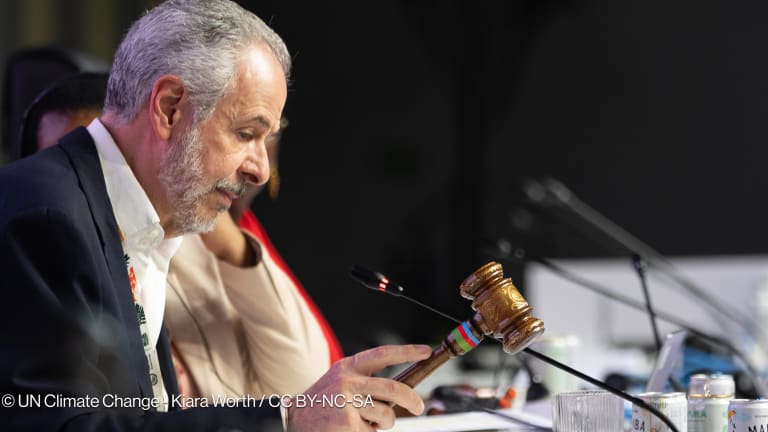Countries are narrowing down the “Pact for the Future,” an all-encompassing international consensus document on how we deliver a better present and safeguard the future — but some United Nations member states and civil society want to see more prominence given to climate change.
On Sept. 22-23, world leaders will meet in New York for the Summit of the Future, which will culminate in the adoption of the Pact for the Future. But as negotiators are approaching the finish line, member states most affected by climate change and civil society organizations are pushing for stronger, climate-specific language to be included in the draft.
If the current language of the text focuses on already existing institutions and mechanisms to deal with the issue, core tensions currently impacting negotiations, especially on reforming international financial institutions, could impact the future of climate finance as well, diplomats involved in negotiations told Devex.








